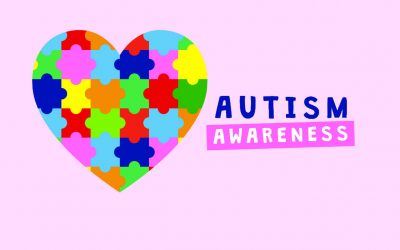The school that gives lessons in how to play with autistic children
By Marcus Leroux
Ten-year-old Francesca Winful seems distracted. She is darting between a computer screen and the table where Anya, her younger sister, is waiting quietly for her to return to the board game they are playing.
Only the occasional request for a hug or high-five from Anya, 7, draws her back. And then off she goes again, back into her own world, impervious to her mother’s gentle coaxing.
Francesca, like 90,000 other school-age children in the country, suffers from autism. She goes to Treehouse School, in North London, which was set up ten years ago by parents dissatisfied with the provision for autistic children in mainstream schools. The parents’ determination and hard work has led to the school growing from a single room in a Swiss Cottage library to a nationwide charity.
The school has already revolutionised the teaching of autistic children. Now it is turning its attention to the overlooked victims – the brothers and sisters – by organising an initiative to help them relate to their autistic siblings.
“I feel far away from her sometimes. She doesn’t want me to play with her and that makes me feel a bit sad,” Anya explains later. “You just have to be patient and do what she wants to do. I don’t want to invade her space or anything.”
Anya, who goes to a nearby mainstream school, says that Treehouse has already helped her relate to her sister. “It’s really helped me get along with Francesca. When my mum is dropping her off at school, the teachers will come over and tell me what they are doing at school and what activities they are doing and then we can go home and do them together.”
Anya enthuses about a day spent at Treehouse that the school organised to let brothers and sisters see what their siblings did. “It was really unlike any other schools,” she said. “There were groups of about four or five people, and all of the attention would be on one person at a time. There are 31 in my class at school. I was doing all the activities that Francesca was doing: drawing, sticking, cutting out, making pictures.”
Anya finds common ground where she can with her sister. They do jigsaws and play board games together, but the contrast between the two is stark. Were it not for the difference in size, Anya would appear to be the protective older sister.
“I was playing in the school yard after school once, and a boy just came up to me and said, ‘Your sister’s stupid’. I was upset, but I couldn’t be too upset with him because he didn’t really know what autism is. If you don’t know about autism, you would just think that,” she says.
Anya’s mother, Wendy Meteyard-Winful, beams with pride as her daughter recounts the story. Anya has an eloquence beyond her years, as though she has developed a precocious vocabulary to compensate for the thoughts and words locked inside her older sister. For Francesca, even a lost toy can lead to a 15-minute ordeal to work out why she is upset.
Their mother says that Anya, a natural extrovert who loves singing and dancing, copes with and understands her sister’s disability with a compassion and patience beyond her years. “She’s learnt that by herself and by being very determined. There are times when I’ve heard something going ballistic in the next room, I’ll want to go in and sort it out. But I know I can’t. She said to me the other day, ‘Mum, I have been doing this for seven years and I don’t need you to help me’.”
She adds: “The very idea that Treehouse is doing sibling workshops is fantastic. Kids learn as they go along but it would be fantastic to give them a head start.
“I wonder whether, had it been done earlier, Francesca might have played more with Anya.”


